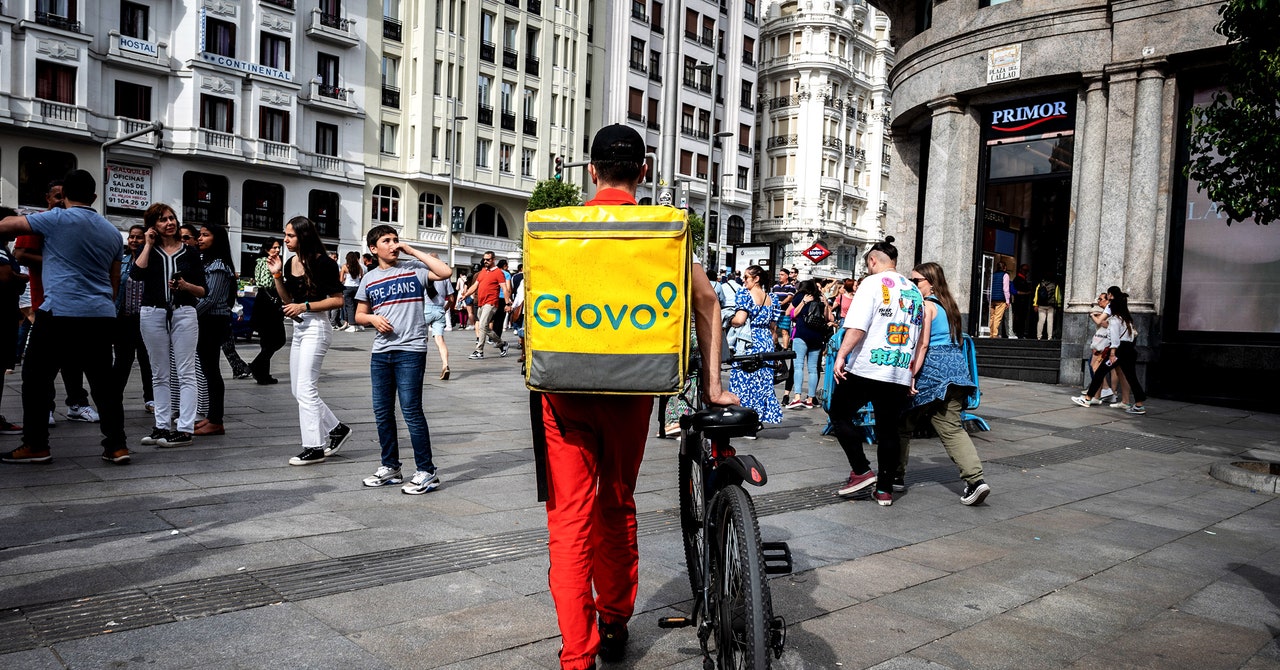In the election, Sumar and the centre-left PSOE will face the Partido Popular, Spain’s traditional right-wing party, and Vox, a new far-right party whose fiery anti-Muslim and anti-immigrant rhetoric – including a pledge to stocking papers – has seen support soar in recent years. That’s a threat many riders will fear, because in Madrid and Barcelona, Spain’s two largest cities, riders themselves believe that more than half of all food deliveries are made by couriers with no legal right to work, although there are are not official estimates.
Vox has promised to scrap the Riders Law if it comes to power.
Repartidores Unidos spokesperson Gaviria recently appeared in a documentary-style interview with Vox leader Santiago Abascal. Gaviria says that Repartidores Unidos is politically independent, but that he himself supports Vox in this election. García, the UGT member, has spoken alongside Díaz at Sumar events.
Pre-election polls are very tight, but they are somewhat in favor of a PP-Vox right-wing coalition government. If that happens, and they scrap the Riders Act, it wouldn’t wipe out riders’ rights in one fell swoop.
The 2020 Supreme Court ruling would still have legal effect. The Labor Inspectorate is technically independent from the government, which means that it can prosecute all matters within its legal competence. The government does, however, influence which matters are considered important. “The new government could decide not to prioritize the platform economy,” says Todolí. “That’s certainly a possibility.”
If that happens, the positions of Glovo and Uber Eats would undoubtedly be strengthened. A change of government “could clearly work in Glovo’s favor,” said Giles Thorne, head of European internet research at investment consultancy Jeffries. “Glovo will be very excited about the end of Yolanda Díaz.”
The result of the July 23 elections could affect platform work outside Spain. The EU is finalizing its Platform Work Directive, an ambitious law that seeks to regulate all work on digital job platforms, not just riders, in all 27 EU member states. The directive is in the final stages of its long march through the EU institutions, where the issue of employment status has been hotly contested. Coincidentally, Spain currently holds the rotating presidency of the EU Council, the body that represents the member states in the EU. Spain is therefore in charge of negotiating the Council’s position on the Platform Work Directive with the European Parliament.
Negotiations officially started on July 11 and are expected to be very difficult. If the Spanish government changes later this month, the presidency will go from one of the most supportive of platform worker labor rights to one of the most hostile.
Whatever is decided in Brussels will reverberate globally, as the European Union will become the first major economic bloc in the global economy with extensive regulation of platform work. Spain’s fractious politics could prove decisive in shaping the future of platform work far beyond its borders.
The EU’s machinations over the intricacies of labor law can seem far removed from everyday reality for motorcyclists trying to survive a heat wave. But what derives from employment status is a set of rights that are very practical in the context of scorching temperatures: Do you get paid if you take more breaks from the sun? Do you get paid time off if you get sick from heat exposure? Is the company you work for legally responsible for your health at work?
The Spanish government introduced a new law in May for outdoor workers in extreme weather, which includes a work ban if there is an official weather warning. While the law applies to Spanish passengers, it does not apply to those at Uber Eats and Glovo who work as independent contractors.
“We have an occupational risk assessment because we are employees,” García says of those at his Glovo Market grocery store. “But 80 percent of Glovo drivers aren’t, and the algorithm doesn’t care if you’re affected by the heat.”

